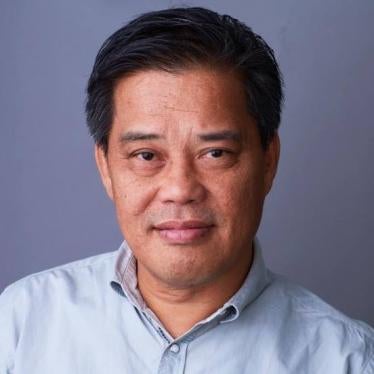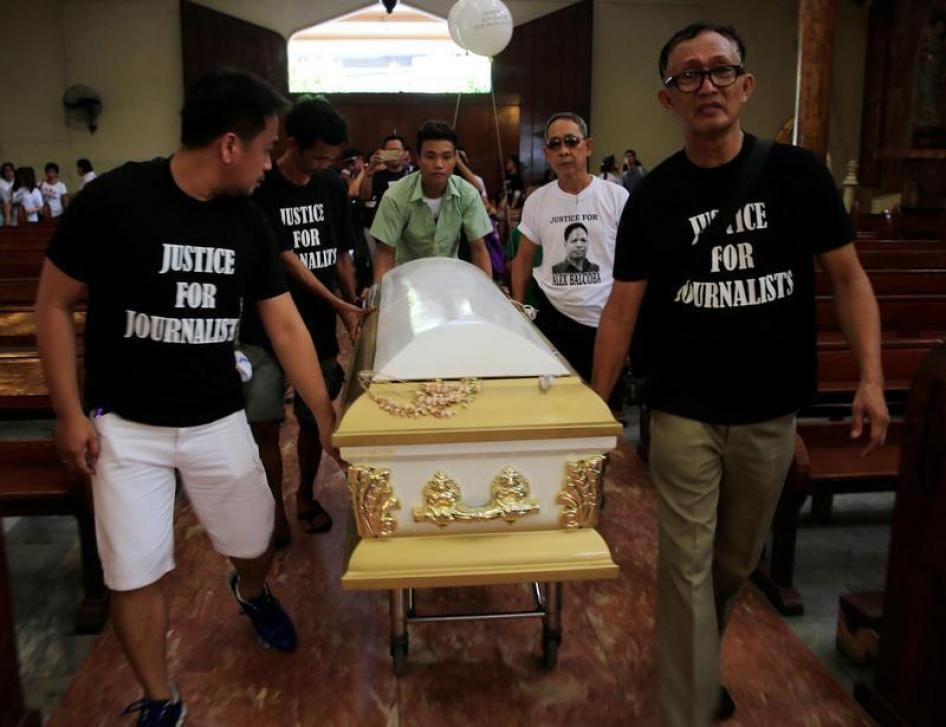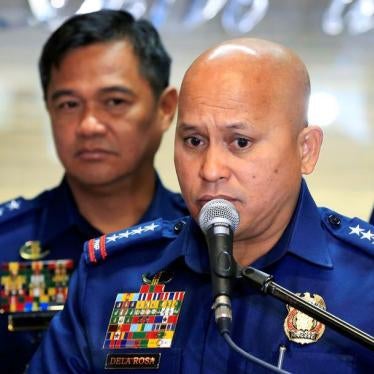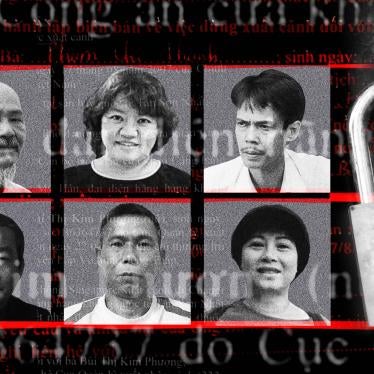It’s not just suspected drug users and dealers at risk of targeted killing in the Philippines. The murders last week of two radio journalists, and the attack on a newspaper columnist Thursday, highlight the need for the Duterte administration to deliver on promises to apprehend those responsible for the killings of journalists.
On August 6, two assailants on a motorcycle shot dead Rudy Alicaway while he was on his way home in Molave town, Zamboanga del Sur province, on the southern island of Mindanao. Alicaway, 46, a radio host on local DXPD, survived the first volley of gunfire, but the gunmen reportedly got off their motorcycle, followed him as he tried to crawl to safety, and fatally shot him. Police say they don’t yet know the motive for the killing of Alicaway, who was also a local councilman.
The next day, two gunmen killed Leodoro Diaz in President Quirino town in Sultan Kudarat, also in Mindanao. Diaz, 60, was a long-time columnist for a local weekly and a reporter for Radio Mindanao Network. He had told his colleagues earlier in the day that he was going to file a report on illegal drugs, but it is unclear whether his reporting was the motive for his killing.
On August 10, a gunman in Batangas City shot in the back Crisenciano Ibon, 65, a columnist for the tabloid Police Files Tonight, and seriously wounded his driver. Ibon survived the attack, which police speculate may have been in retaliation for his columns criticizing illegal gambling.
The deaths of Alicaway and Diaz brought to four the number of journalists killed since President Rodrigo Duterte took office in June 2016. Journalist Larry Que was killed on December 19 and Joaquin Briones on March 13.
On October 11, Duterte signed an administrative order creating a task force on media killings. Since then there is little evidence that the task force has actively pursued attacks on journalists. In Que’s case, his widow filed a criminal complaint against the provincial governor, a policeman and three others for her husband’s death.
Since 1986, 177 journalists and media workers have been killed in the Philippines, making the country one of the most dangerous countries to practice journalism, according to the Committee to Project Journalists. Previous administrations launched similar task forces on media killings, but all failed to end impunity for those deaths. Despite its assurances that journalists are “safer” now, Duterte’s task force will suffer the same fate so long as the administration actively endorses extrajudicial killings. Without accountability for killings of journalists, media freedom in the Philippines will remain under threat.
|
Dispatches
Philippine Journalist Killings Demand State Action
Duterte Task Force Should Promptly Investigate
Your tax deductible gift can help stop human rights violations and save lives around the world.
Region / Country
Topic
Most Viewed
-
November 25, 2019
A Dirty Investment

-
May 12, 2025
The Gig Trap

-
April 27, 2021
A Threshold Crossed

-
January 23, 2018
Hidden Chains

-
September 30, 2024
“They Destroyed What Was Inside Us”





